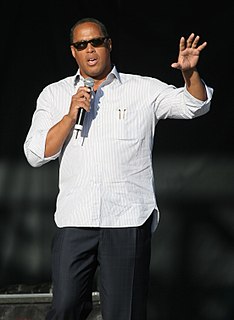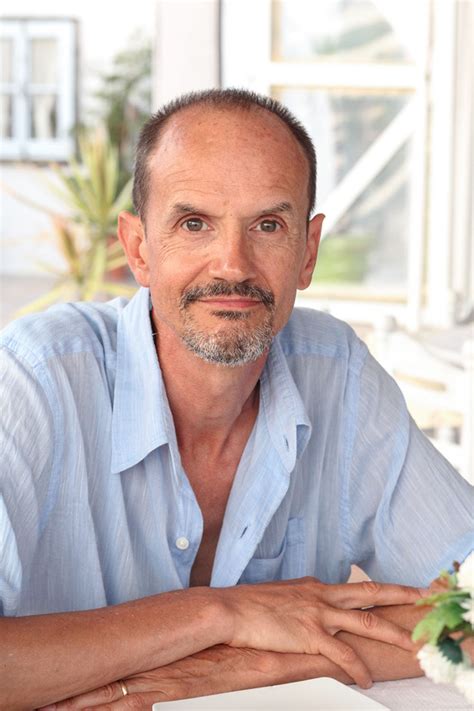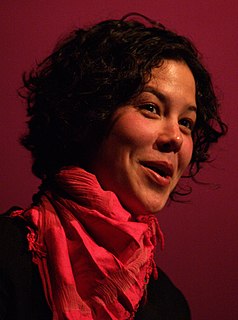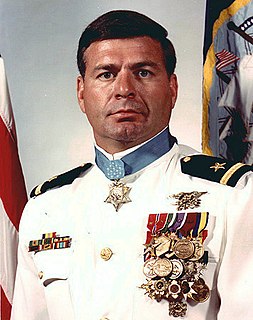A Quote by Frank Pittman
What we men share is the experience of having been raised by women in a culture that stopped our fathers from being close enough to teach us how to be men, in a world in which men were discouraged from talking about our masculinity and questioning its roots and its mystique, in a world that glorified masculinity and gave us impossibly unachievable myths of masculine heroics, but no domestic models to teach us how to do it.
Related Quotes
... the socialization of boys regarding masculinity is often at the expense of women. I came to realize that we don't raise boys to be men, we raise them not be women (or gay men). We teach boys that girls and women are "less than" and that leads to violence by some and silence by many. It's important for men to stand up to not only stop men's violence against women but, to teach young men a broader definition of masculinity that includes being empathetic, loving and non-violent.
Our father has an even more important function than modeling manhood for us. He is also the authority to let us relax the requirements of the masculine model: if our father accepts us, then that declares us masculine enough to join the company of men. We, in effect, have our diploma in masculinity and can go on to develop other skills.
We become male automatically because of the Y chromosome and the little magic peanut, but if we are to become men we need the helpof other men--we need our fathers to model for us and then to anoint us, we need our buddies to share the coming-of-age rituals with us and to let us join the team of men, and we need myths of heroes to inspire us and to show us the way.
Most of us have felt barriers between ourselves and our fathers and had thought that going it alone was part of what it meant to be a man. We tried to get close to our children when we became fathers, and yet the business of practicing masculinity kept getting in the way. We men have begun to talk about that.
The men who are messing up their lives, their families, and their world in their quest to feel man enough are not exercising truemasculinity, but a grotesque exaggeration of what they think a man is. When we see men overdoing their masculinity, we can assume that they haven't been raised by men, that they have taken cultural stereotypes literally, and that they are scared they aren't being manly enough.
Those who make us believe that anything’s possible and fire our imagination over the long haul, are often the ones who have survived the bleakest of circumstances. The men and women who have every reason to despair, but don’t, may have the most to teach us, not only about how to hold true to our beliefs, but about how such a life can bring about seemingly impossible social change.
We long for our father. We wear his clothes, and actually try to fill his shoes. . . . We hang on to him, begging him to teach ushow to do whatever is masculine, to throw balls or be in the woods or go see where he works. . . . We want our fathers to protect us from coming too completely under the control of our mothers. . . . We want to be seen with Dad, hanging out with men and doing men things.
Men can be effective allies by making space and amplifying the voices of women around them. When each of us is an ally in our own sphere of influence - when we embrace the fact that representation is everyone's responsibility, all of the time - we won't have to go to the movies to see a world that's free of toxic masculinity.
Medal of Honor belongs to every man and woman who gives us the freedom today to be able to hold our flag and hold our heads up high and say we have the greatest country in the world. And that goes with the men and women in the past, and the men and women of today, and the men and women of the future. As long as Mike Thornton lives, that medal will always stand for all them. Not for me. Not for what I've done, but for what I was trained to do and what they have been trained to do to give us our freedom today.
































